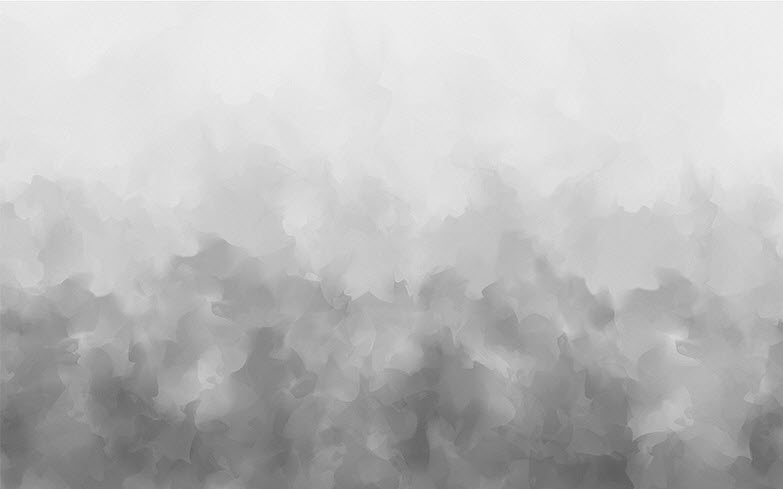We may earn money or products from the companies mentioned in this post.

Overview
This article contains information about why is African hair so different compared to other ethnic groups.
African hair is often seen as unique and intriguing by people of other cultures.
People with Afro-hair are often asked questions about their hair by non-Africans, such as “How do you wash it?”, “Can you comb it when it’s wet?” or “Do you have to use special hair products?”.
Black hair is like any other type of hair; it can be straightened, curled, or between. Like all other races, hair requires care and attention to keep it looking its best.
Click here for Amazon Annual Audible Membership!
So what makes African hair so different?
Kinky hair is unique in both its appearance and its structure. Because the hair is tightly curled, it grows at a sluggish rate of 0.9 centimeters each month.
African hair also produces a high amount of sebum, which helps to keep the hair healthy. The sebum, however, does not get distributed evenly along with the hair fiber due to the hair’s tight curls.
Other ethnic groups have hair that is more loosely curled, and as a result, their sebum is spread evenly along the length of the hair shaft. This provides them
As a result, African hair often appears dry and brittle. In addition, the tight curls make it more susceptible to breakage.
Despite these challenges, African hair is strong and resilient, able to withstand significant heat and chemical processing. With proper care, African hair can be healthy and beautiful.
If you want to learn the best tips to reverse your frizzy hair, read Anti-frizz Treatment: 5 Best Frizz Remedies for Silkier Hair.
Can black people have straight hair?
Yes, African Americans get their hair straight, but this can be achieved by using chemicals or heating tools. Relaxers are the most common type of chemical used to straighten black hair.
They work by breaking the disulfide bonds in the hair, resulting in permanently straight hair. Heating tools like a flat iron or hot comb can also be used to straighten hair.
When straightening hair with heat, it is important to use heat-protective oils to avoid damaging the hair. Doing so will protect tightly coiled hair strands from heat damage, making them less likely to break.
Though this technique is not advised for hair that is damaged, it is however much safer than using straightening chemicals.
Why do black people have curly hair?
Most Africans tend to have hair follicles that are more oval in shape, which causes their hair to grow in tighter, smaller coils. This type of hair is often referred to as “Type 4” hair.
In contrast, people of European ancestry typically have rounder follicles, which results in straighter hair. The unique texture of African hair is also due to its structure.
Each strand of natural hair is often much thicker than a strand of Caucasian hair. In addition, African hair has a nearly flat, ribbon-like shape, while Caucasian hair is more round in structure.
These characteristics give African hair greater strength and durability but also make it more susceptible to breakage.
Do all black people have the same hair type?
No, not all black people have the same hair type. In fact, there is a wide range of hair types found among people of African descent.
The three most common types of African hair are Type 4A, Type 4B, and Type 4C Afro-textured hair. Each type has its own unique set of characteristics.
Despite the wide range of hair types, all African hair share some commonalities. Black people’s hair is often drier than other hair types and is more susceptible to breakage.
How is black hair different from white hair?
There are many differences between black, white, and Asian hair. One of the most obvious differences is the texture. Black hair is often much curlier and coarser than white hair.
Another difference is the density. On average, black people have 90,000 hair follicles, while European hair has 120,000. This means that black people have less hair overall.
Most ethnic groups have a mix of both straight and curly hair, but African Americans are more likely to have only kinky hair or tight coils.
In addition, black hair has a thinner cuticle layer than other hair types, which means that strands may break more easily. Despite these challenges, the black hair follicle is strong and resilient, able to withstand significant heat and chemical processing.
What does an afro look like?
That is an excellent question! An afro is a hairstyle that is most commonly seen in people of African ancestry, although it can be worn by anyone with curly hair texture.
The afro consists of very fluffy, voluminous hair that is often styled in a round shape. One of the defining features of an afro is that it is usually quite large – some people say that the bigger, the better!
Because African hair texture is naturally dry and brittle, Afros often require care and maintenance to stay healthy. But it can be worth it, as an afro is a truly unique and beautiful hair styles.
Why does afro hair defy gravity?
It’s because of the very tightly coiled hair strands shape. This type of hair is often described as being “kinky.” The tightly coiled hair grows in vortical patterns that make the hair appear as if it is growing out instead of down.
As a result, the hair appears shorter than it would if it were straight. But this is only an illusion! Actually, when stretched out, afro hair is much longer than straight hair.
What does black people’s hair feel like?
Black human hair is unique. The natural type 4 hair is usually soft and fluffy. However, African American hair that is damaged from overuse of chemicals, heat styling, and improper care feels rough and tight. When the damage is repaired, the texture of the hair returns to its natural state.
Why is African hair short?
The main reason textured hair is short is that it is very curly. When curly hair is wet, it shrinks up and looks shorter. But when it dries, it expands back to its full length.
So, even though African wavy hair may look short when it’s wet, it can be quite long when it’s dry. Additionally, many African Americans are now embracing their natural hair texture, which often includes shorter lengths.
In the past, many black women straightened their hair shaft with harsh chemicals and heat treatments to achieve a longer, sleeker look.
However, this trend is changing as more and more women opt for natural styles that celebrate their unique textures. As a result, short hair is becoming more prevalent within the African American community.
Does black hair produce oil?
While all scalp produces some oil, black hair does not make as much because it is typically drier. This is because what’s called sebum (oil) does not travel as easily from the scalp down the hair shaft due to the twists and turns of the hair follicle.
However, using natural oils products can help seal in moisture and prevent the hair from becoming too dry. As a result, black hair can benefit from using natural oils to keep it healthy and hydrated.
African hair adds value to black American culture.
In the black community, hair is seen as an extension of the self, identity, and a source of pride. For many African Americans, hair is an important part of their cultural heritage and a physical manifestation of their African roots.
Black hair is often seen as a symbol of strength and resilience, as it can withstand a lot of wear and tear. In addition, the way that black hair grows is unique and often considered to be more beautiful than other hair types.
In recent years, black women have ditched perms for natural afros, braided styles, and locs. This movement has not only improved the quality of black women’s hair but also celebrated the move from European standards of beauty.
Why is African Natural Hair so Different final thoughts
In conclusion, African natural hair is not only different in texture and style, but it is also rich in culture and history.
By understanding the meaning behind our hairstyles, we can appreciate their beauty and importance even more.
So next time you see an afro or loc, remember that it is so much more than just a style- it is a representation of strength, resilience, and beauty.



